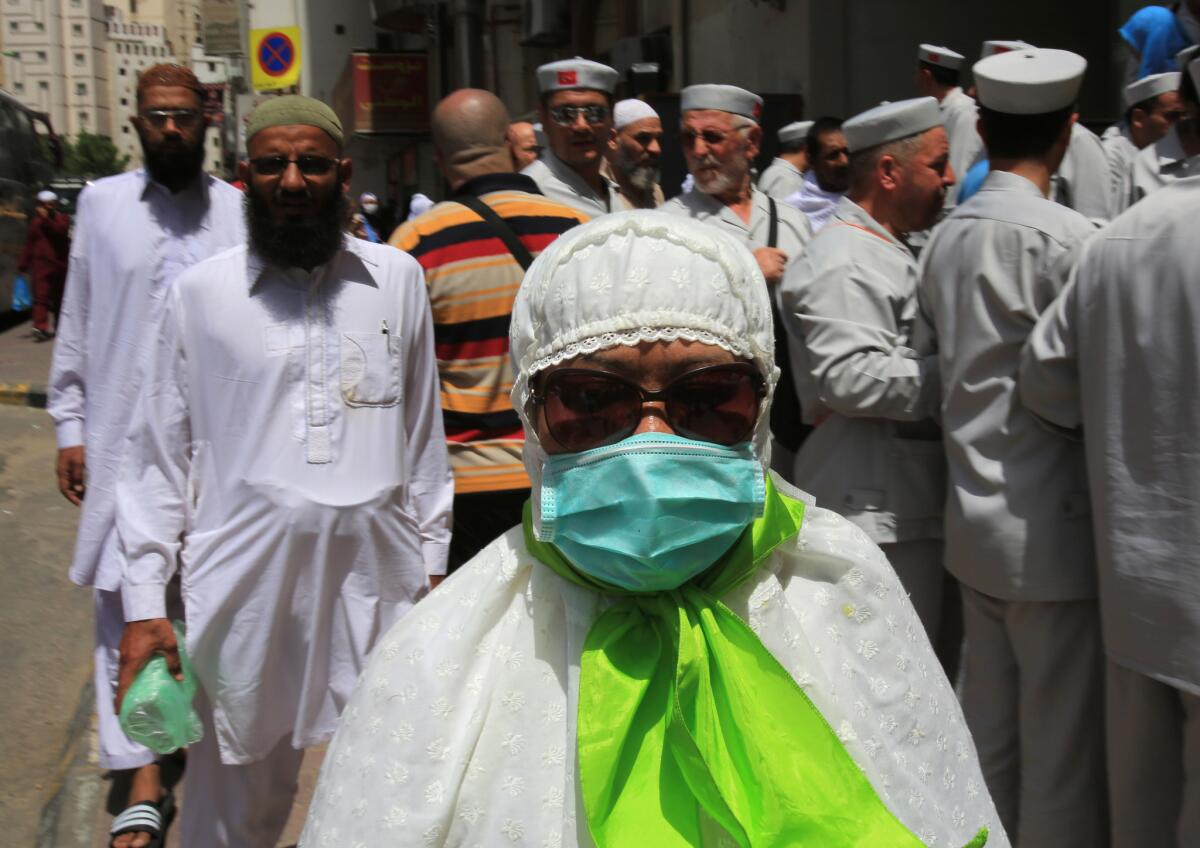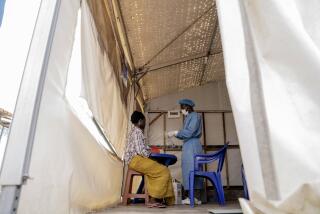Opinion: WHO isn’t scared of MERS, so why don’t I feel better?

Should we be worried about MERS? The World Health Organization says not really, at least not yet.
So why don’t I feel better? (Not literally. That’s rhetorical: I mean, I feel fine, really. Allergies, maybe. Just a little tickle in the throat.)
Perhaps, though, it’s because whenever I read stories about Middle East respiratory syndrome, or MERS, they include the words “deadly” and “no known cure.” Which, to someone like me — a living human being with plans for the summer and beyond — are not, well, especially comforting.
So I read stuff. To cheer me up. To reassure me. Which it does. Sort of.
On Wednesday, WHO said that MERS “is not yet a global health emergency” but that it “is a situation of concern and urgency,” according to NBC News. It reported:
“WHO experts urged Saudi Arabia, the main source of the infection, to do more to control the infection and to cooperate with experts to study it and understand it better.
“ ‘Most urgent is the need to strengthen and improve infection practices in hospitals,’ WHO’s Dr. Keiji Fukuda told reporters after a meeting of WHO’s International Regulations Emergency Committee.
“ ‘We saw many examples where infection control practices have broken down.’ ”
Which was a little bit good news, a little bit bad news. So I kept searching.
On Tuesday, my colleague Eryn Brown here at The Times wrote a useful primer on what we know so far about MERS, including reassuring words from some researchers: “I’m optimistic that we’ll get this under control,” said Columbia University epidemiologist W. Ian Lipkin. “I think we’ll be able to stop this outbreak.”
OK, that’s better.
Still, the facts are sobering. As Brown writes: “Characterized by fever, respiratory problems and kidney disease, MERS was first detected in a Saudi patient in 2012. In the two years since, 145 people have died from the ailment — nearly 30% of 538 confirmed to have had it, according to the U.S. Centers for Disease Control and Prevention.
“In early May, the CDC reported the first case of MERS in the U.S. On Monday, a second case emerged.”
Or, in other words: Why oh why did I watch “Contagion” on cable the other night?
Look, I’m not a hypochondriac. It’s not that I don’t trust the scientists and medical folks. And it’s not that I don’t understand that MERS is hard to catch, isn’t always fatal and is confined mainly to Saudi Arabia. I want to believe Lipkin when he says we can handle this.
But I wish he had said “we’ll be able to stop this outbreak” without adding those two little words, “I think.”
Because when it comes to fatal diseases with no known cures, “I think” gives me chills.
Partly, it’s a problem of semantics. You see, I use “I think” often, as in “I think the Dodgers will win the World Series” or “I think I remembered to turn off the stove” or even “I think I’ll feel better tomorrow.”
In my world, “I think” can also mean “I hope” or even “I’m taking a shot in the dark here.”
So there’s that.
And then there’s this: Face it. We aren’t scientists. We aren’t medical folks. This is one of those times we’re forced to trust our scientists and our governments. Which, yes, I’m willing to do.
But I’m hoping that, when it comes to MERS at least, those folks turn “I think” into “we can” fairly soon.
And I am certainly not watching “Outbreak” on cable tonight.
More to Read
A cure for the common opinion
Get thought-provoking perspectives with our weekly newsletter.
You may occasionally receive promotional content from the Los Angeles Times.











